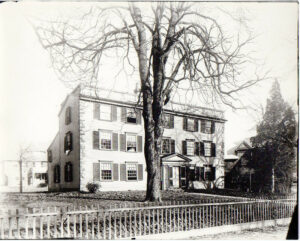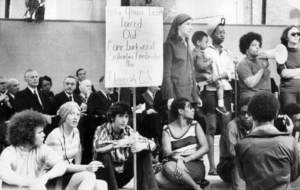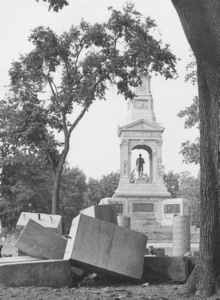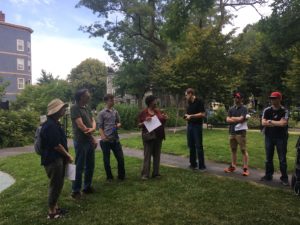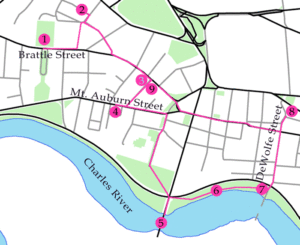Riverside’s Neighborhood Resource at 80
By Daphne Abeel, 2010
From the outside, the red clapboard building that houses the Cambridge Community Center (CCC) at 5 Callender Street in the Riverside neighborhood is deceptive. Few would guess that it is big enough to contain a full-size basketball court as well as a large first-floor art gallery and spacious, well-lit classrooms on the second floor. The CCC has been carrying out its mission since 1929, when it was incorporated by a group of local African-American ministers and residents of Riverside “to provide a center for the recreational, educational and social activity for the people of the community, who desire to make wholesome use of their leisure time.”
The building was once the Tarbell Elementary School, named for Mary A. Tarbell, a longtime Cambridge schoolteacher. The CCC bought it in 1948. Its function is similar to that of two other Cambridge nonprofits, the Margaret Fuller House in Area 4 and East End House in East Cambridge, which began as traditional settlement houses.
Today, according to David Gibbs, its new director, the CCC serves about 2,000 people a year, including children who take part in a licensed afterschool program. The CCC also sponsors computer programming classes, tutoring, sports programs, and has a library.
“We serve more than Cambridge,” said Gibbs. “A lot of our people still come from the Riverside neighborhood, but we have many who come from places further away, such as Arlington and Dorchester.” Since the 1960s, Gibbs said, “there’s been a trend for African-Americans to move out of Riverside.” Veterans began finding job opportunities outside the immediate neighborhood, and that trend was sharply accelerated by the end of rent control. “Riverside used to be a stable middleclass black neighborhood,” Gibbs said. “Now, it is the most diverse area in the city and also the poorest after Area 4.” CCC now draws Hispanics in large numbers as a well as a sprinkling of Asians and whites.
Gibbs, trained as a lawyer and formerly director of the Family Institute in Watertown, is the first white to serve as director. He succeeded longtime head Janet Kendrick. The CCC currently employs 13 staff members, including Tasha Pogue, who directs and oversees the afterschool program. R-Jay Jones serves as site coordinator, and the organization uses hundreds of volunteers, many of whom come from nearby educational institutions and businesses. Harvard’s Operations Services oversees CCC’s buildings, grounds, and any construction projects. A capital campaign hopes to raise $5 million, which will support expanded programs for seniors, a parenting program, and the infant-toddler program. A large portion of the funds will support the construction of a new health clinic, to be administered by the Cambridge Health Alliance.
On a recent afternoon, a young girl worked with her tutor on a reading lesson, a boy sat on a bench in the hall reading a book, and another boy did his homework at a table in the art gallery. The mission seemed alive and well.

